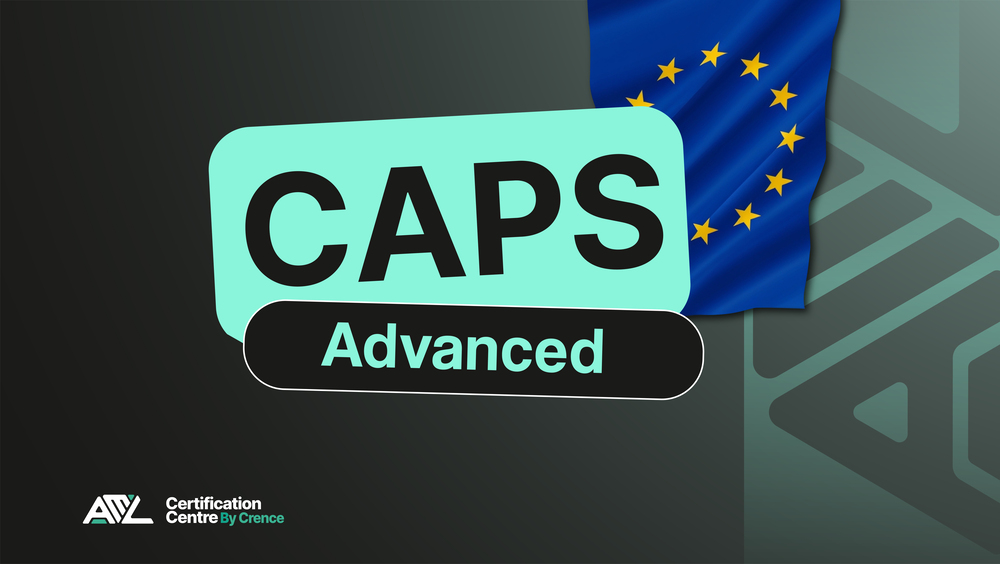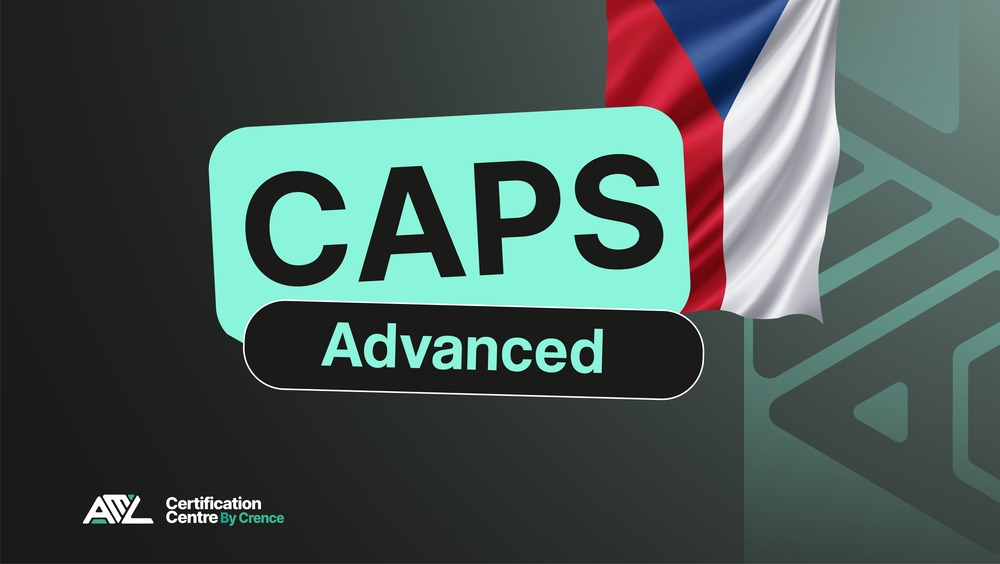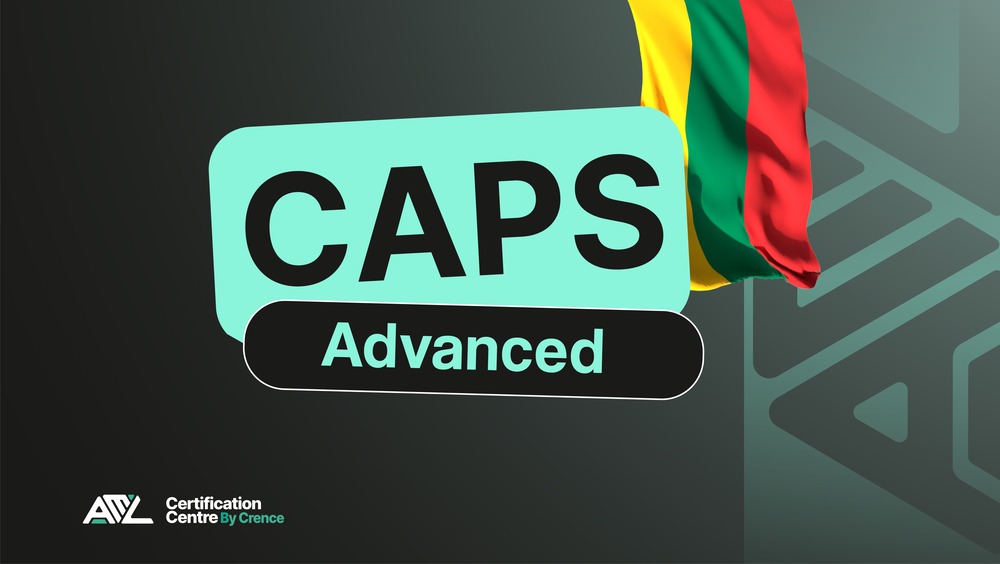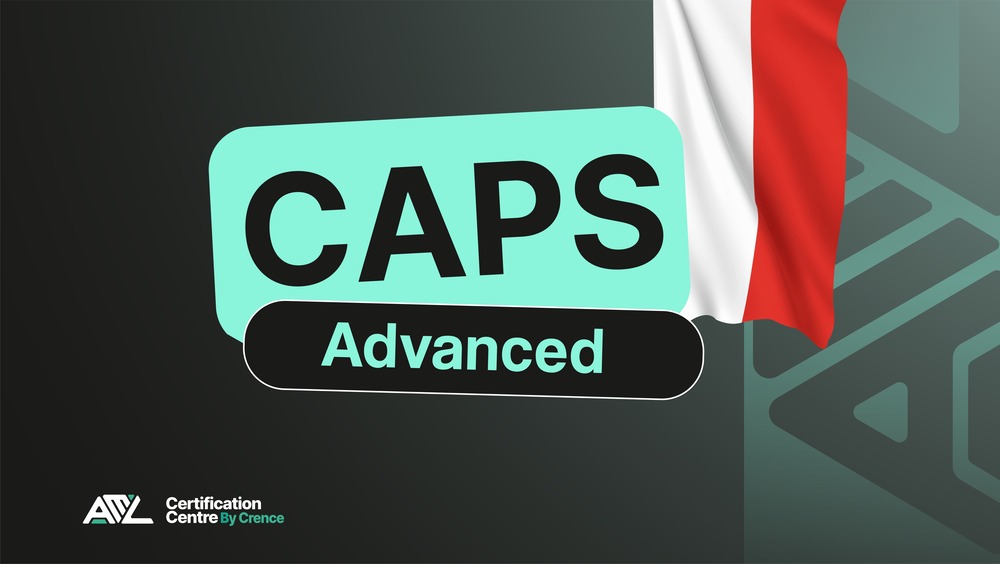4.9/5
4,201
Intermediate
 English (B2)
English (B2)
Certified Anti-Money Laundering Specialist (Senior)
 CPD-Accredited
CPD-Accredited - The CASS anti-money laundering certification program is the next step for anti-financial crime (AFC) professionals. It is suitable for those, who already have experience in AML and current professionals in the field who want to gain in-depth knowledge and new career opportunities.
- CASS allows you to master skills such as developing AML/CFT compliance programs, conducting KYC/CDD procedures, monitoring transactions, working with virtual assets, and applying new technologies (such as AI and robotics).
- The Anti-Money Laundering Certification Program CASS is CPD accredited and complies with international standards. Upon successful completion of the course, you will receive official status as a Certified Anti-Money Laundering Specialist (Senior), confirming your high level of competence.
 6 hours of on-demand video
6 hours of on-demand video  54 Reading Materials
54 Reading Materials  50 Quizzes
50 Quizzes  Lifetime Access
Lifetime Access  20 CPD Credits
20 CPD Credits  36 Visual Schemes
36 Visual Schemes  Certificate of Completion
Certificate of Completion  4 weeks – Recommended Learning Timeline
4 weeks – Recommended Learning Timeline 

Certify Your Team with CASS – Designed for Businesses
Train your compliance team with the Certified Anti-Money Laundering Senior Specialist (CASS) program, delivered fully online with dedicated onboarding and support.
Key benefits:
- Team discounts from 10% to 50% based on group size
- Progress tracking for managers and audit-ready records
- Lifetime access to course materials and LMS
- Global certification with CPD hours included
- Invitations to exclusive global events and webinars with certificates
A practical, cost-effective way to strengthen AML expertise and meet regulatory requirements across your organization.
Request your tailored business quote in less than 1 minute below.
Overview of the Certified AML Specialist Course (CASS)
Designed for AML professionals moving from delivery to specialist capability
CASS is built around real compliance tasks. By the end, you can:
- 1. Handle complex EDD and escalation decisions confidently
- 2. Write regulator-ready investigation narratives and evidence trails
- 3. Apply risk-based thinking consistently across cases
- 4. Identify control gaps and propose remediation actions
- 5. Improve the quality of alerts, triage, and case management
Our delegates have secured roles such as Chief Compliance Officer, Head of Financial Crime, and Regulatory Affairs Manager at institutions like BNP Paribas, Citi, Fiserv, Crypto.com, Blockchain.com and other global institutions.
See how learners gain essential skills to start a compliance career
Visual Timeline
AML Foundations
AML/KYC Analyst
CASS
AML Officer/Compliance Specialist
CAPS
Head of Compliance/AML
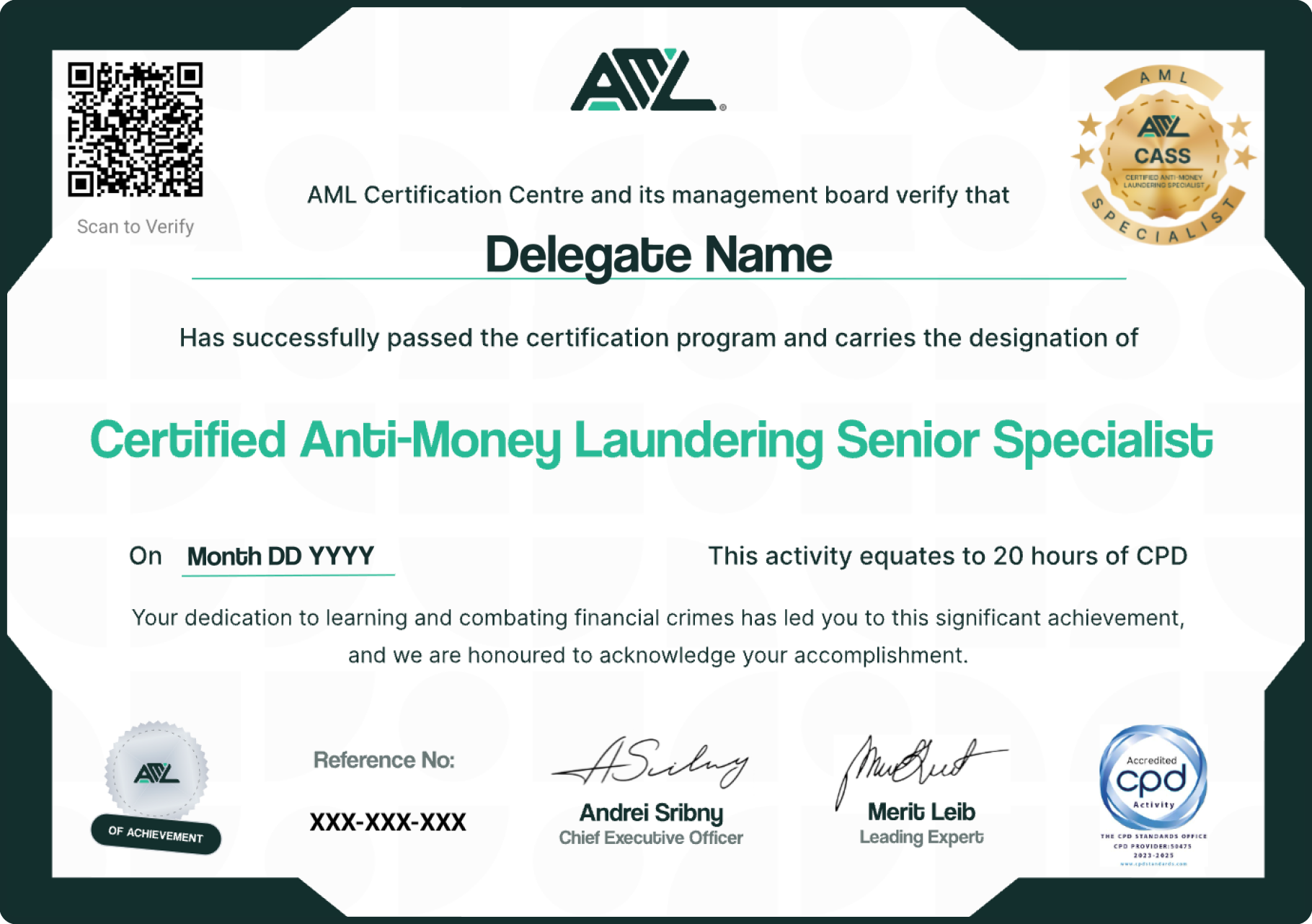
How CASS certification strengthens your AML career
Move from operational execution to specialist judgement, control ownership, and regulator-ready practice.
CASS certified
The designation you receive together with the certificate
Learner satisfaction: 4.8/5
Average rating from post-course feedback
Alumni in 79+ countries
International cohort across banks, fintechs, and other regulated sectors
Career progression reported
According to the post-completion survey
Ready to progress in your AML career?
Move from operational AML knowledge to specialist-level expertise recognised across regulated sectors.
After completing the CASS certification:
- You strengthen your eligibility for specialist and senior AML roles
- You gain structured, in-depth AML expertise aligned with real compliance functions
- You are better prepared for regulator-facing, audit, and risk-related responsibilities
- You can present a recognised AML certification to employers across multiple jurisdictions
During your Career & Regulatory Call, we will review:
- Your current AML, compliance, or financial crime experience
- Roles aligned with your background across banks, fintechs, VASPs, and other regulated institutions
- Jurisdiction-specific regulatory expectations (EU, UK, US, MENA)
- Realistic career pathways—from AML analyst to specialist, senior, and leadership roles

The course is designed for those who want to reach a new level in the field of combating financial crime. By studying online at a time convenient for you, you will gain not only theoretical knowledge, but also real practical tools that you can apply in your work while still studying.
The main goal of the program is to teach you how to effectively identify, analyze and prevent money laundering and terrorist financing schemes, as well as how to build reliable compliance programs that meet international standards.
The main objectives of the Certified Anti-Money Laundering Specialist course include:
- Mastering the principles of identifying and analysing financial crimes, including key elements and money laundering schemes, as well as typologies of terrorist financing.
- Developing skills in designing and implementing compliance programs based on a risk-based approach, taking into account geographical risk indices, sanctions regimes and international standards.
- Gaining an in-depth understanding of KYC/CDD procedures, including enhanced due diligence (EDD), ultimate beneficial owner (UBO) identification and PEP identification.
- Acquisition of practical skills in transaction monitoring, suspicious activity reporting, and the use of AI and automated systems in AML processes.
- Develop strategic thinking and leadership skills in AFC risk management, as well as the ability to adapt AML practices to different countries, industries, and business models.
The course will be useful for AML specialists from various fields and sectors.
Banking and finance sector
You will learn:
- how to develop and implement comprehensive AML programs;
- how to establish strict KYC/CDD procedures;
- how to use automated transaction monitoring systems and report to regulators competently.
This helps banks and investment companies reduce the risk of fines and strengthen customer trust.
Non-financial sectors
The program reveals the specific vulnerabilities of industries such as real estate, casinos, precious metals trading, legal and accounting services, auditing, and non-profit organizations.
You will learn methods for identifying suspicious transactions, concealing ultimate beneficial owners, and using non-financial companies in cash-out schemes. This allows you to protect your business from involvement in money laundering schemes and avoid serious reputational risks.
Fintech and digital services
You will learn:
- how to build an online customer identification process (EKYC);
- how to create automated monitoring systems (TMS) using AI;
- how to work with the risks of virtual currencies and crypto assets.
For fintech companies, this means building AML processes that comply with international standards and effectively managing the risks associated with virtual currencies and digital assets.
Corporate sector
You will learn:
- how to develop effective risk management programs;
- how to apply the international standards of Wolfsberg and the Basel Committee.
This enhances the company’s reliability, reduces the likelihood of financial and reputational losses, and strengthens the trust of partners and investors in the company.
Legal and consulting firms
The training provides lawyers and consultants with an understanding of actual AML/CTF enforcement practices. This helps them support clients in cross-border transactions, business structuring, and compliance audits.
The program takes into account the current requirements of the EU, US, UK, UAE and FATF recommendations. The training also builds an understanding of the expectations and requirements of financial supervision, regulators and policymakers, enabling transparent interaction with supervisory authorities and reducing the risk of sanctions. As a result, Certified Anti-Money Laundering Specialists will be able to adapt their skills to the specificities of the legislation of any jurisdiction and work confidently with international clients.

Targeted Candidates

The course is aimed at professionals interested in developing and strengthening their expertise in combating money laundering and other types of financial crime. Participants in the program have the opportunity to undergo in-depth training and obtain the Certified Anti-Money Laundering Specialist designation, which opens up additional career prospects and confirms their high level of qualification.
Who is the Certified Anti-Money Laundering Specialist (Senior) course intended for:
- Employees of banks, insurance and brokerage companies, microfinance and credit organizations, exchange offices and other financial institutions.
- Representatives of government and supervisory authorities, including central banks, financial sector regulators, financial intelligence units and tax authorities.
- Compliance and risk management specialists and AML solution providers;
- representatives of non-financial industries for which AML/CTF requirements are important (real estate companies, lawyers and notaries, precious metals and stones operators, trust and investment funds, auditors and accountants).
The program is designed for professionals who already have a basic knowledge of AML/CTF. We recommend that beginners first take the Foundations (ABC) course to ensure they have the necessary basic training.


- Understanding money Laundering
- Historical Background and Evolution of Money Laundering
- Consequences and Impacts of Money Laundering
- Understanding Terrorist Financing
- Historical Background and Evolution of Terrorist Financing
- Consequences and Impacts of Terrorist Financing
- Differences and Similarities between Money Laundering (ML) and Terrorist Financing (TF)
- Understanding Proliferation Financing (PF) and Consequences
- International Sanctions: Importance and Why?


- General concepts
- Services, activities and products may be used for money laundering
- Common roles in the Money Laundering Process (Money Mules, Professional Launderers, etc.)
- Fraud and Other Predicate Offences as Part of Money Laundering
- Examples of Money Laundering
- Evolving Techniques and Trends in ML
- Navigating the Pathways of Terrorist Financing
- Evolving Techniques and Trends in TF
- Examples of Terrorist Financing


- Basic Principles of Risk Management
- Introduction to Compliance Programs
- Introduction to the First Line (of Defence)
- Introduction to the Second Line (of Defence)
- Introduction to the Third Line (of Defence)
- Introduction to Training and Awareness Programs for Employees
- Other elements of AML/CTF Compliance Programs
- External auditors/regulators


- What is Risk Assessment?
- Basic Steps for Conducting Risk Assessments
- ML/TF+ Risk Identification
- AML/CTF+ Risk Scoring
- Examples of Risk Assessment Scenarios


- The Significance of KYC in AML/CTF+ Efforts
- Why KYC protocols vary by country and industry
- Risk-Based Approach to KYC
- Customer Due Diligence (CDD)
- Enhanced Due Diligence (EDD)
- Politically Exposed Persons (PEPs)
- Simplified Customer Due Diligence (SDD)
- Challenges in KYC Procedures
- The Role of Technology in KYC Procedures


- Introduction to Ongoing Due Diligence
- Spotting Suspicious Activities
- Case study


- Understanding the Reporting of Suspicious Financial Activities (SAR/STR)
- General Requirements and Reporting Obligations
- Communication with Relevant Authorities and Regulators


- AML/CTF+ in Banking and Financial Institutions
- AML/CTF+ in Non-Financial Sectors


- Role of International Organisations in Combating ML/TF+
- Cooperation and Information Sharing among Regulatory Bodies




- Enforcement Actions and Penalties for AML/CTF+ Violations
- Building a Culture of Compliance
- Case Studies – Penalties


Final examination consisting of multiple-choice, scenario-based questions and true/false statements

Examination Process

After completing the Certified Anti-Money Laundering Specialist program, participants must take a final exam, which is a mandatory step in obtaining anti-money laundering certification.
The exam is conducted on the same educational platform where the training took place. It includes 60 questions in various formats:
- multiple-choice tests;
- true/false questions;
- and analysis of practical situations.
The test takes 90 minutes to complete, and the minimum passing score for CASS certification is set at 80%.
Students are given three free attempts to pass the exam, after which each subsequent retake is charged separately (€70 per attempt). The results are displayed immediately after the answers are submitted.

Learning Outcomes

Completing the Senior AML certification program allows you to:
Expand your knowledge:
- gain a deeper understanding of the principles and practices of combating money laundering, terrorist financing and the proliferation of weapons (AML/CTF+);
- study global and regional standards, including FATF recommendations, EU, US and other country regulations;
- learn about the history of money laundering and the impact of financial technologies, including virtual currencies.
Acquire practical skills:
- develop effective compliance programs and conduct risk assessments;
- perform KYC procedures, including enhanced verification and working with politically exposed persons (PEPs);
- master transaction monitoring and the preparation of suspicious activity reports;
- apply modern technologies, such as artificial intelligence, to optimise processes.
The course curriculum is based on case studies, models, and practical assignments, allowing you to apply your knowledge in real-world situations.
Upon completion of the exam, participants receive an accredited CPD certificate, official Certified Anti-Money Laundering Specialist (CASS) status, and 20 CPD credits. Additionally (upon request), course participants receive a one-year membership to the CPD Institute with access to online resources, webinars, training materials, and an international community of professionals. This ensures continuous professional development and compliance with current industry requirements.

After successfully completing the course and passing the exam, you will receive an accredited CPD certificate, which grants you the official title of Certified Anti-Money Laundering Specialist. This certification entitles you to use the official CASS designation on your CV, social media e.g LinkedIn and professional presentations, showcasing your expertise and strengthening your professional standing in the compliance field.
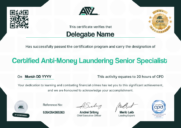

This status confirms your competence in the field of combating financial crime and significantly increases your value in the job market. As a certified AML specialist, you will be able to apply your knowledge in various financial and non-financial institutions, including:
- commercial banks;
- insurance companies;
- investment funds;
- crypto companies;
- brokerage firms;
- as well as in government agencies such as central banks and financial intelligence units.
The certificate complies with international requirements, in particular the FATF recommendations, making it sought after by a wide range of regulators and organizations in the EU, US, UK, UAE and around the world.
Ready to start your AML career?
Trusted by professionals from leading companies
Our courses have been attended by specialists working at companies across various industries, from tech and product teams to digital agencies and startups.




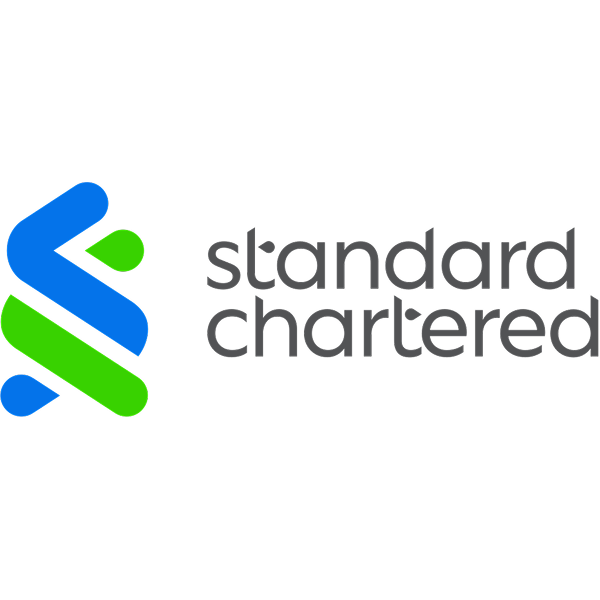
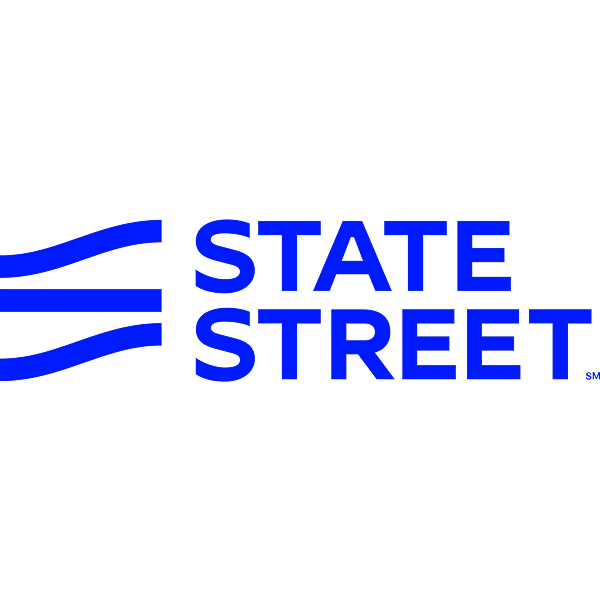

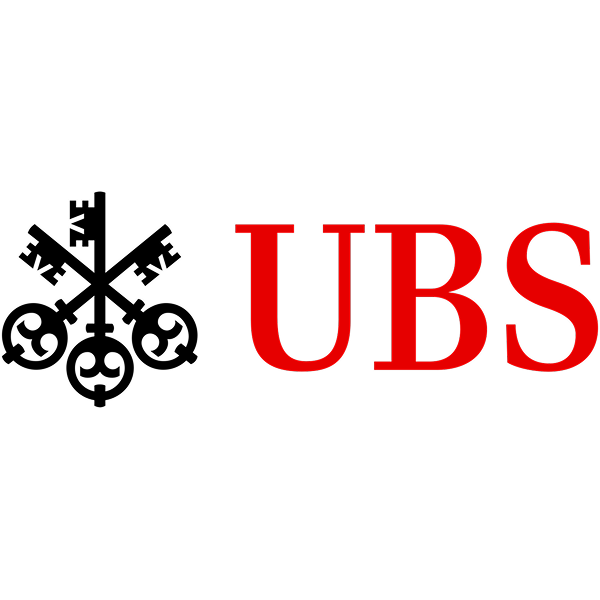


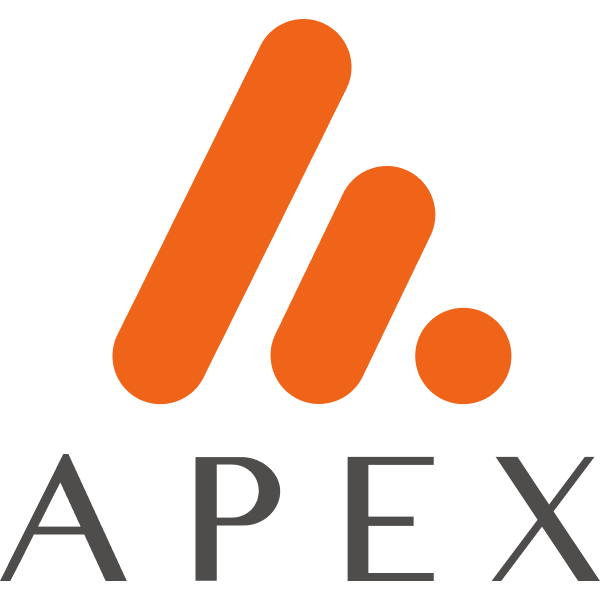
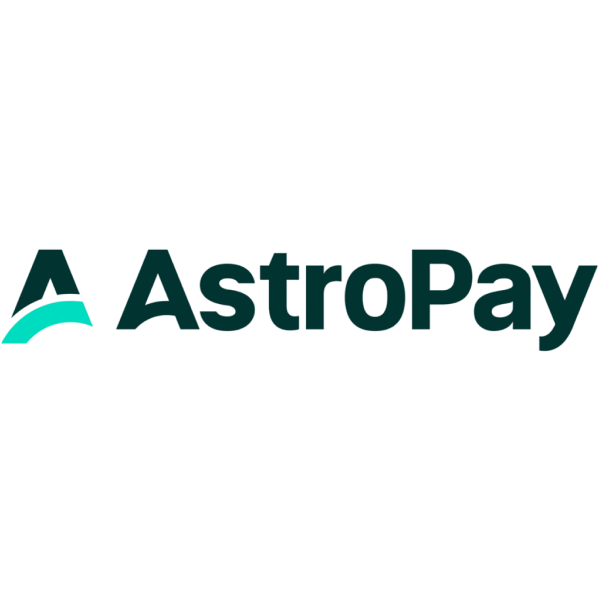



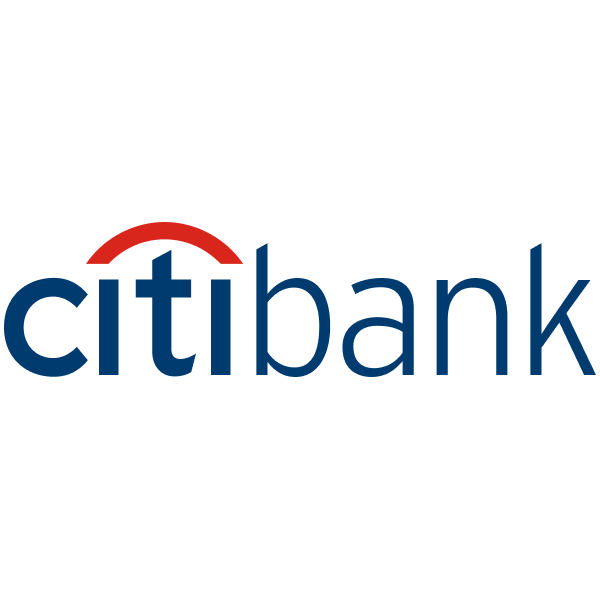
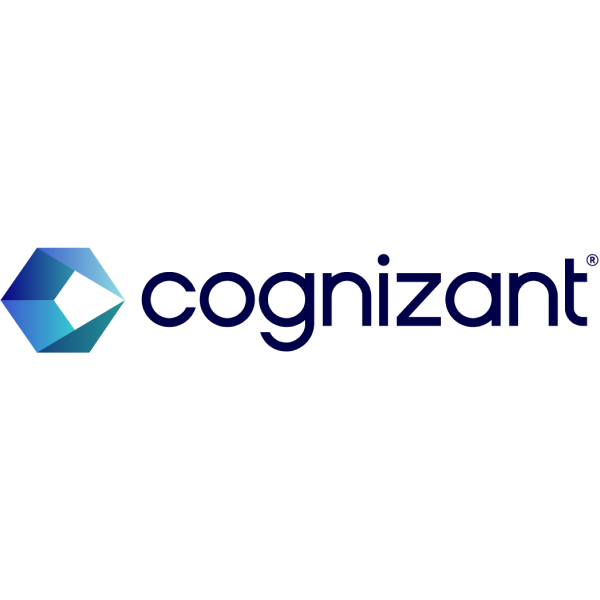
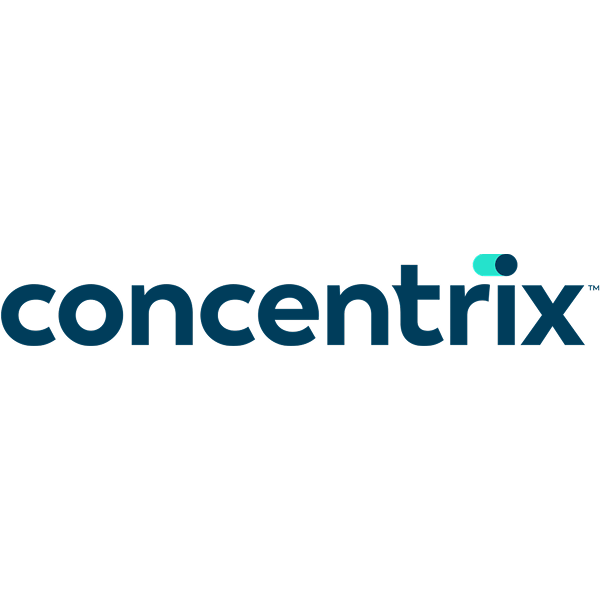
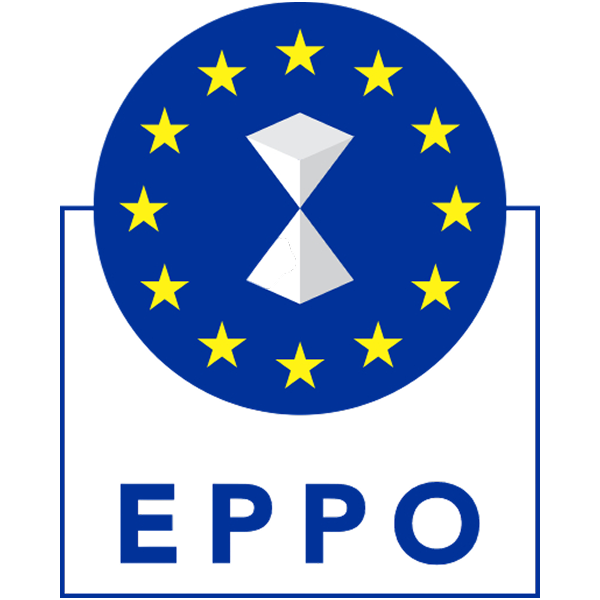
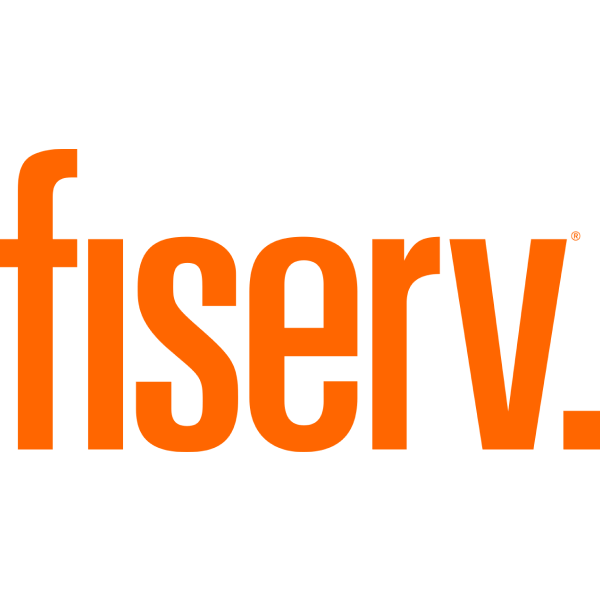

What People Say About Us





 5/5
5/5
Equipping compliance professionals with the tools to identify and neutralise threats obligated entities face – AML Certification Centre training programs are an effective Anti-Financial Crime toolkit from practitioners for practitioners.
Read More




 5/5
5/5
“This is one of the best AML/CTF training I’ve ever had in my professional career combating financial crime for over than 15 years. In my opinion AML Certification Centre’s AML/CFT course is more valuable and relevant than other similar organizations provide. You can choose the tailored training based on your knowledge level and improve it. If you want to have interesting reading and localized training – you should definitely take it!”
Read More




 5/5
5/5
“I was searching for new qualifications and due to high demand for AML specialists my choice fell on this line of work. As a newcomer I took the foundations course. The materials presented to me further ignited my interest, the lessons were well structured, video materials combined with text were especially useful for digesting information. I felt like a few mid-course tests were a bit hard, but upon completion I revised my notes and it all made sense. Overall, I am satisfied with this course and its length, it fit perfectly into my schedule and I want to continue my education with this provider.”
Read More




 5/5
5/5
“Awesome course with big amount of materials. The best part is that this course can be done whenever you have time and streight to learn. Thank AML Certification Centre for this course.”
Read More




 5/5
5/5
I’m really satisfied with the CASS certification program. It gave me useful insights and knowledge that I’ve already started using at work, even before finishing the final test and getting certified. This definitely helped me boost my skills and confidence and clarified many points. I recommend this course to anyone waiting to learn more about AML/CTF principes and practices! The platform is also great, and the customer support really fast.
Read MoreOur expertise











 4.9/5
4.9/5 4,201
4,201 Intermediate
Intermediate English (B2)
English (B2)
 Igoris Krzeckovskis
Igoris Krzeckovskis

